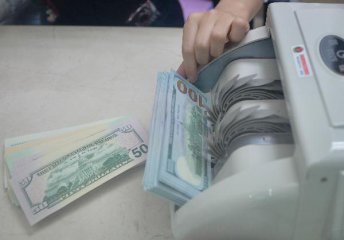
Decline in China's foreign exchange reserves in August warns of capital outflow risks, the People's Bank of China (PBOC) is expected to keep RMB exchange rate stable to avoid systematic risks of capital outflow, according to Anbound Consulting, a domestic think tank for public policy.
On Aug. 11, the central bank decided to let the market have a greater say in forming the yuan's central parity rate against the U.S. dollar, leading to a depreciation of more than 4 percent last month. PBOC sell US treasury bonds to buy RMB in the foreign exchange market so as to stabilize RMB exchange rate.
In the past two weeks PBOC might sell 106 billion US dollars, a report released by Societe Generale Bank said. Anbound Consulting said that decline in China's forex reserves warned of capital outflow risks caused by RMB depreciation and worries about the slide of China's economy.
As the plunge of A-share market dragged down capital return, hot money may flow out of China for higher gains. Meanwhile as for real economy, with pessimistic data of PMI and foreign trade exacerbating concerns over China's economy, capital is likely to shift to better investment destinations.
Anbound Consulting is not sure that whether capital outflow has become a trend, but systematic risks of capital outflow may occur when the RMB exchange rate falls to blow 6.5 against US dollar.




















Latest comments